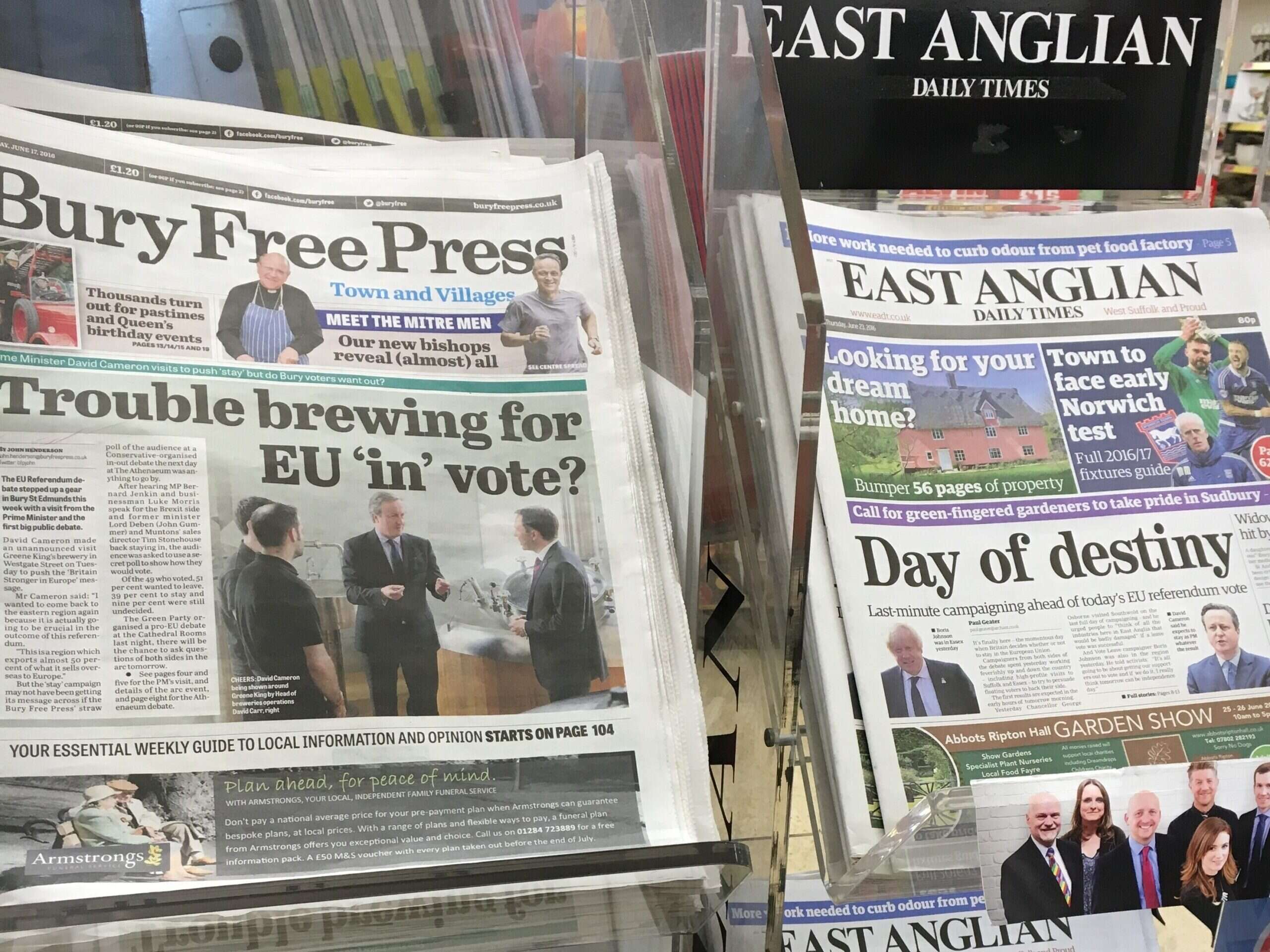
What people want from their local and regional news media is “increasingly confined” to a small number of subjects such as politics and crime, a new report has found.
This has resulted from a “great unbundling” of traditional local newspaper packages meaning social and search platforms and specialist websites are now the winners in areas such as: things to do, housing, jobs and weather.
The 2021 Digital News Report from the Reuters Institute for the Study of Journalism noted that regional and local newspapers are used by 6% of people in the UK each week in print and 8% online, according to a Yougov survey of about 2,000 people carried out as part of the report.
Even during the coronavirus pandemic, throughout which trust in traditional news media has been boosted, local newspapers were seen as only the third-best source for local Covid-19 information by UK respondents.
Search or other websites were seen as the best source for coronavirus news by 26% of Brits, followed by local TV (22%) and then newspapers (17%). Newspapers beat social media on 12% and local radio on 8%.
By contrast, local newspapers were seen as the best source for Covid-19 information by more than half (53%) of respondents in Norway.
The report found that Norwegians value their local newspapers more than twice as much as Brits in every category.
This appeared to translate to willingness to pay for local news, with 57% of news subscribers in Norway paying for at least one local digital outlet compared to 23% in the US and just 3% in the UK.
Across 38 countries local newspapers were seen as the best source of news for local announcements (48%), local crime (31%), the local economy (30%), local politics (29%), local sport (27%), and schools and education (22%).
Local TV was seen as the best source for Covid-19 information (22%).
In general traditional media (newspapers, TV and radio) are preferred for hard news topics, accounting for about 50% to 60% of preferences for politics, crime, Covid-19, the economy and sport.
Newspapers also continued to be valued for formal announcements such as births, deaths and weddings.
But social media and search websites take the biggest shares for information about shops and restaurants (49%), local services (47%), or things to do (46%).
The survey also asked people in 38 markets what information they had actually sought out in the previous week, revealing around half had accessed both coronavirus or other health news and weather information.
But rates were low for all other topics, with around a third saying they had accessed local politics information in the previous week and all other topics below that level and most under a quarter.
In general terms, many Nordic and Eastern European countries had high access rates for local news, the US and many Latin American countries sat somewhere in the middle, and the UK, Japan and an anomalous Denmark sat at the bottom.
The report said: "In the past, traditional local news media have been used for a wide range of local news and information. Today, as our analysis has shown, they are seen as the best source only for a minority of topics, with people preferring platforms and specialised websites for most others.
"This ‘great unbundling’ has further undermined traditional business models, underlining the importance of a much clearer value proposition for local news media who want to stand out from the many alternative sources of information available."
The report also suggested that in places where people access local news more often they have higher attachment to their community, but noted research has so far been unable to provide evidence of a causal relationship.
Picture: Shutterstock
Email pged@pressgazette.co.uk to point out mistakes, provide story tips or send in a letter for publication on our "Letters Page" blog
